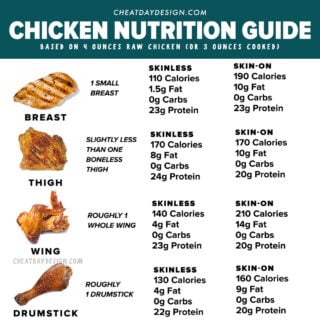Introduction to E-Learning in Healthcare Careers
E-learning, or electronic learning, refers to the use of electronic technologies to access educational curriculum outside of a traditional classroom. In most cases, it involves the use of a computer or electronic device (such as a mobile phone) to deliver instructional materials, monitor student engagement, and assess their performance.
In the context of healthcare careers, e-learning has become increasingly important. The healthcare industry is fast-paced and requires continuous learning and upskilling to keep up with the latest medical knowledge, technologies, and procedures. E-learning provides healthcare professionals with the flexibility to learn and grow without compromising their work schedules or patient care.
Moreover, e-learning platforms can offer specialized courses that might not be readily available locally, allowing healthcare workers to gain expertise in niche areas of their field. This mode of learning supports the ongoing professional development that is crucial in healthcare, where the stakes are high and the need for skilled professionals is ever-growing.
By embracing e-learning, healthcare professionals can enhance their skills, improve patient outcomes, and advance their careers while contributing to the overall improvement of healthcare services. It’s a win-win for both the individual and the industry as a whole.
Flexibility and Convenience in E-Learning for Healthcare Careers
One of the most significant advantages of e-learning is the flexibility and convenience it offers, especially for those in the healthcare field. Let’s break down what this really means:
Learning on Your Own Schedule Healthcare professionals often work long, irregular hours, making traditional classroom attendance challenging. E-learning eliminates this barrier, allowing you to learn at times that suit you best. Whether it’s during a night shift break or on a quiet Sunday afternoon, you can log in and pick up right where you left off.
Balancing Work and Education E-learning is the ultimate balancing act. It enables healthcare workers to pursue further education without having to take a career break. This means you can continue gaining practical experience while also enhancing your theoretical knowledge. It’s about integrating learning into your daily life without the need to sacrifice your professional responsibilities or personal commitments.
By offering the ability to learn flexibly, e-learning empowers healthcare professionals to manage their time effectively, leading to a better work-life-education balance. It’s about making education work for you, not the other way around.
Accessibility: Expanding the Reach of Healthcare Education
E-learning has dramatically expanded the accessibility of education, particularly in the healthcare sector. Let’s explore how it overcomes traditional barriers:
Global Reach of E-Learning With e-learning, geographical boundaries become irrelevant. Healthcare professionals from any corner of the world can access the same quality of education as those in major cities or educational hubs. This global reach ensures that everyone has the opportunity to learn from leading experts and institutions, no matter their location.
Overcoming Geographical Barriers For those living in rural or underserved areas, attending a brick-and-mortar institution can be a significant challenge. Travel can be costly and time-consuming, and sometimes there are simply no educational facilities within a reasonable distance. E-learning bridges this gap, bringing comprehensive healthcare education to anyone with an internet connection. It’s a powerful way to democratize education and empower healthcare workers everywhere to improve their skills and provide better care to their communities.
Cost-Effectiveness: The Financial Advantage of E-Learning
When it comes to education, especially within the healthcare sector, cost-effectiveness is a crucial factor. E-learning stands out in this regard for several reasons:
Affordability of Online Courses Online courses often come with a lower price tag compared to traditional classroom-based courses. Without the need for physical space and resources, institutions can save on overheads and pass these savings onto learners. This makes advancing your healthcare career through education more affordable than ever before.
Reduction in Associated Costs Beyond the course fees, e-learning cuts down on the hidden costs of education. Commuting expenses, parking fees, and even the daily coffee run add up quickly when attending classes in person. E-learning eliminates these costs, allowing you to invest more in your learning and less in getting to and from class.
In summary, e-learning is not just a time-saver; it’s a budget-friendly option that makes education more accessible to healthcare professionals worldwide. It’s an efficient way to enhance your skills without breaking the bank.
Customized Learning Experience: Tailoring Education to the Individual
E-learning stands out for its ability to offer a customized learning experience. Here’s how it personalizes education for healthcare professionals:
Personalized Learning Paths In traditional classroom settings, everyone receives the same instruction, regardless of their prior knowledge or skills. E-learning, however, allows for personalized learning paths. This means that healthcare professionals can focus on areas they need to improve or skip modules they’re already proficient in, making their education journey more efficient and relevant to their needs.
Self-Paced Progress The self-paced nature of e-learning is a significant benefit. It acknowledges that everyone learns at a different speed. Some may grasp concepts quickly, while others may need more time to fully understand new information. E-learning accommodates all learning speeds, ensuring that healthcare professionals can progress through courses in a way that maximizes their understanding and retention of knowledge.
By providing personalized learning paths and allowing for self-paced progress, e-learning ensures that healthcare professionals can learn in a way that suits their individual needs and preferences, ultimately leading to better educational outcomes and more competent healthcare providers.
Interactive and Engaging Content: Enhancing Learning with Technology
E-learning has transformed the educational landscape, particularly in healthcare, by incorporating interactive and engaging content. Let’s delve into how this benefits learners:
Use of Multimedia E-learning platforms leverage a variety of multimedia tools to enrich the learning experience. This includes videos, animations, infographics, and podcasts, which can make complex healthcare topics more digestible and engaging. For instance, an animated video can illustrate the human anatomy in a way that a textbook simply cannot match.
Simulation-Based Learning One of the most exciting aspects of e-learning in healthcare is simulation-based learning. This method uses virtual reality (VR) or other simulation tools to replicate clinical scenarios. Healthcare professionals can practice procedures and make decisions in a risk-free environment, which can improve their skills and confidence before they perform these tasks in real life.
By utilizing multimedia and simulation-based learning, e-learning not only makes education more interesting but also more effective, leading to a deeper understanding and better retention of knowledge. It’s a dynamic way to prepare healthcare professionals for the challenges of their field.
Up-to-Date Information: Keeping Pace with Healthcare Innovations
In the ever-evolving field of healthcare, staying informed about the latest developments is not just beneficial—it’s essential. E-learning excels in providing up-to-date information through:
Real-Time Content Updates Unlike traditional textbooks that may take years to reflect new research, e-learning platforms can update content in real-time. This ensures that healthcare professionals have access to the most current information, guidelines, and best practices as soon as they’re available.
Staying Current with Healthcare Trends E-learning not only keeps you informed about the latest medical discoveries but also about emerging healthcare trends. Whether it’s a new healthcare policy, a technological breakthrough, or a shift in patient care standards, e-learning helps you stay ahead of the curve.
By offering the latest information and accommodating swift content updates, e-learning ensures that healthcare professionals are well-equipped to deliver high-quality care and make informed decisions in their practice.
Networking and Collaboration: Connecting Healthcare Professionals Worldwide
The digital age has ushered in unprecedented opportunities for networking and collaboration, especially through e-learning platforms in healthcare. Here’s how it fosters professional connections:
Building Professional Relationships E-learning platforms often feature discussion boards, live chat rooms, and group projects that allow healthcare professionals to connect with peers and experts from around the world. These virtual spaces enable the sharing of experiences, insights, and support, fostering professional relationships that can last a lifetime.
Peer-to-Peer Learning One of the most valuable aspects of networking in e-learning is the opportunity for peer-to-peer learning. Healthcare professionals can learn from each other’s experiences, discuss case studies, and collaborate on problem-solving. This collective learning environment enriches the educational experience and can lead to improved patient care practices.
By promoting networking and collaboration, e-learning not only enhances the educational journey but also builds a global community of healthcare professionals dedicated to sharing knowledge and improving health outcomes.
Career Advancement: Elevating Your Healthcare Profession through E-Learning
E-learning is not just about acquiring knowledge; it’s a stepping stone for career advancement in healthcare. Here’s how it contributes to professional growth:
Certification and Specialization Online courses and programs offer healthcare professionals the chance to earn certifications or specialize in particular areas of interest. This could range from learning about new medical technologies to specializing in a field like gerontology or epidemiology. These qualifications can make a significant difference in your career trajectory, opening doors to new opportunities and roles.
Enhancing Professional Credentials In addition to certifications, e-learning can contribute to your continuing education credits, which are often required to maintain professional licenses. By staying current with your education, you demonstrate a commitment to your profession and a dedication to providing the best possible care. This dedication can be recognized by employers and peers alike, leading to potential promotions and leadership opportunities.
In essence, e-learning is a valuable tool for healthcare professionals looking to enhance their credentials and advance their careers. It provides the flexibility to pursue further education while maintaining a full-time job, ultimately leading to greater job satisfaction and improved patient care.
Conclusion: Embracing the Future of E-Learning in Healthcare
As we wrap up, let’s revisit the remarkable benefits of e-learning for healthcare careers. It offers unparalleled flexibility and convenience, allowing professionals to learn on their own terms. Its accessibility breaks down geographical barriers, bringing education to learners regardless of their location. The cost-effectiveness of e-learning makes advanced education more attainable, while its customized learning experience caters to individual learning styles and speeds.
The interactive content and simulation-based learning engage users in a way that traditional methods cannot, enhancing the learning process. With up-to-date information, healthcare professionals can stay abreast of the latest trends and innovations. E-learning also facilitates networking and collaboration, connecting learners with peers worldwide. Lastly, it provides significant career advancement opportunities through certifications and specializations.
Looking ahead, the future of e-learning in healthcare is bright. As technology advances, we can expect even more immersive and effective educational tools. The potential for virtual reality to simulate clinical environments, artificial intelligence to personalize learning, and mobile platforms to increase accessibility is vast. E-learning will continue to play a pivotal role in shaping the healthcare professionals of tomorrow, ensuring they are well-equipped to meet the challenges of an ever-changing healthcare landscape.
FAQs
How does e-learning enhance the learning experience for healthcare professionals?
- E-learning uses interactive multimedia, real-time updates, and personalized paths to create a dynamic and engaging learning environment.
Can e-learning in healthcare help with career progression?
- Yes, e-learning can lead to certifications and specializations that are recognized by employers and can open doors to new career opportunities.
Is e-learning suitable for hands-on healthcare fields?
- While e-learning is an excellent tool for theoretical knowledge, it is often complemented by practical, hands-on training for comprehensive education.
What are the technical requirements for e-learning?
- A reliable internet connection, a computer or mobile device, and sometimes specific software or applications are needed for e-learning.
How can healthcare institutions implement e-learning effectively?
- Institutions can offer a blend of synchronous and asynchronous courses, utilize the latest educational technologies, and provide support for both instructors and learners.


